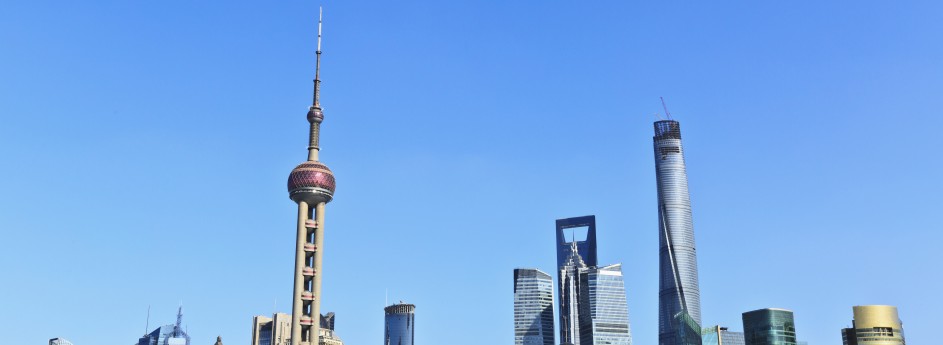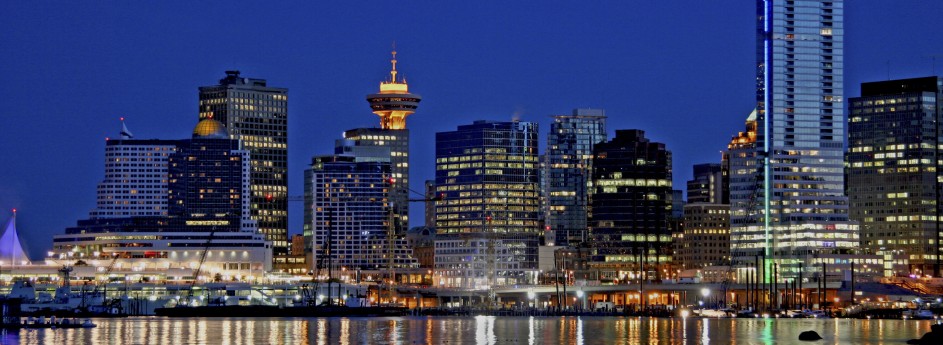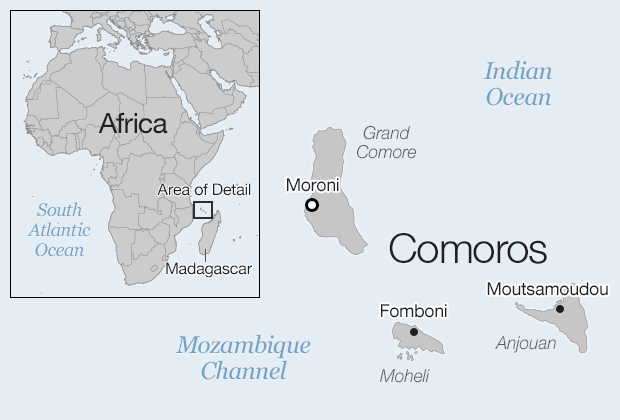Chinese Company Wipes Out Malaria in Comoros in One Go
In the backdrop of China’s significant contributions to fighting the Ebola outbreak in West Africa (and yet be on the receiving end of unfair criticism from both uninformed Africans and Western media organizations, institutions, and governments), here is a prime example of Chinese companies trying to some good in Africa but getting panned for it.
On the tiny and desperately poor island country of Comoros sandwiched between the Southeast Africa coast and Madagascar, the scourge of malaria plagues the entire population. In partnership with the Comoran government, Chinese pharmaceutical company Artepharm has given doses of its malaria-fighting drug Artequick to over 700,000 people in a bid to wipe out the deadly disease on the islands completely. The drug has not been approved by international health organizations and the company is touting its success in Comoros to market to the rest of Africa.
This one-off mass administration campaign has virtually wiped out malaria there but because side effects have affected a very small segment of recipients, some Comorans are now complaining why the Chinese hadn’t given food and other aid instead. The WHO also got into the fray accusing Artepharm workers of insensitivity in their investigations of side effects as well as suggesting that a malaria-free Comoros could rob the people of their built-up immunity to malaria thereby creating conditions for an epidemic if the disease ever found its way back to the islands.
Well, you can’t have the cake and eat it too!
If the drug saves the country over US$11 million in medical treatment costs and contributes to stability in the country, the mass drug administration should be considered to have done a public good for the Comoros. The WHO is undoubtedly busy with its public health concerns around the world but there may be an element of sour grapes involved, having not thought of the seemingly incredible idea of eliminating the disease in one fell swoop. Having said this, the company probably should have done a better PR and treatment job in their handling of side effect issues.
Another issue has to do with market competition between Chinese pharmaceutical companies, the new kids on the block, and entrenched Western giants that don’t take kindly to Chinese corporate encroachments onto their traditional turf. Coartem, a rival to Artequick produced by Dutch company Novartis, is also vying for the African market and some bad publicity for Artepharm and its campaign on Comoros doesn’t do Novartis any harm.
Comoros Vice President Fouad Mhadji and Minister of Health dismissed criticism of the mass drug administration as propaganda fueled by Western rivals to the Chinese drug maker. “Why is Artequick bad? It is because it is sold by China,” Mr Mhadji told CBS.
The article and accompanying video report can be seen at: http://www.cbsnews.com/news/chinas-test-malaria-drug-artequick-experiment-on-population-of-comoros/
Most Hong Kongers Want Protesting Students to Go Home: Poll
Although the Chinese University of Hong Kong survey of community sentiment toward the Occupy Central protests has been mentioned in the press, it is worthy to take a more detailed look at its results. Just after the poll’s release last Sunday, the police moved in to dismantle the barricades at the main protest site in Admiralty as a group of radicalized students tried to break into the Legislative Council building resulting in several arrests.
A third round of telephone interviews was conducted in local Cantonese dialect of 1030 Hong Kong citizens 15 years and older by the university’s Center for Communication and Public Opinion Survey between November 5-11, the results (with a response ratio of 42% and margin of error of 3.1%) of which were released on November 16. The results showed Hong Kong citizens clearly feed up with the students’ rancor and demanding a swift end to the blocking of streets.
Asked whether they supported the Occupy Central protests, 43.5% replied in the negative (extremely do not support or relatively do not support), nearly as many as in September (46.3%) when the protests began but up substantially from October (35.5%) Those who vigorously or somewhat supported the protests declined to 33.9% from 37.8% in October. The survey also discovered the younger the age cohort, the greater the propensity to support for the protests with over 2/3 (67.7%) of the 15-24 year old grouping strongly or relatively supporting the movement. Moreover, the poll found the higher the education, the more the support.
On the question of whether the students should retreat from the protest sites immediately, an overwhelming majority (67.4%) said they should or really should with only 13.9% saying they should hunker down. As with their attitudes toward Occupy Central, the older the cohort, the greater the demand for abandonment. Notably, 59.7% of the 25-39 year group wanted the students to leave and 53.9% of college or higher educated indicated the same. Also, interestingly, 73.3% of centrists (neither China, business, nor pan-democrat leaning) and 80.4% of those without any political affiliation wanted the students to get out. Even 39.9% of radical and moderate democrats agreed the students should dump their campaign.
As to whether they trusted the police to do the right thing, most respondents (55.6%) said in the affirmative, up 11.5% over October. Those distrusting the police fell from 28.6% in October to 20% this time round. The police was graded 6.25 out of 10 for their handling of the students, up from 5.49 in October. Asked whether they were confident about Hong Kong’s future, while pessimists (34%) outnumbered optimists (25.3%), the percentage of pessimists has steadily declined since September (45.6%) and October (37.7%) with optimism going up since September (21.2%). Yet, sentiment about Hong Kong was graded at 4.8/10 above the range for pessimism (0-4) and up from September (4.22) and October (4.57).
However, another poll conducted on November 11-12 Of 510 Hong Kong residents by American firm Selzer & Co. for Bloomberg Global Poll with a margin of error of 4.3% found 87% of respondents saying the protests did not divert financial activity away from the city, a fear that was greatly exaggerated by the foreign press who suggested global investors would flee Hong Kong for safer havens like Singapore. Nonetheless, 57% still felt business would be driven away if the students stayed on while less than 1/3 (30%) believed the protests were unlikely to exert a palpable affect on the city’s position as a financial center.
But, returning to the Chinese University of Hong Kong survey, ominously for the 2017 election of the Chief Executive of the Hong Kong SAR, 46.7% responded that the Legislative Council should not approve of any vetos on candidates made by the central government. Although down from 53.7% in September (48.5% in October), it is still 10.6 percentage points higher than those wanting the Legco to vote in favour (36.1%) who have increased from 29.3% in September. On the other hand, if the central government eliminates company and executive votes in the Election Council, leaving it entirely to individual voting by the ‘four big communities’ in Hong Kong society to elect members, then 45.4% would approve as compared to 35% opposed.
So, there is still room for compromise and Hong Kong may again draw the eyes of the world during the run-up to 2017.
Chinese Aid Abused by African Leaders: Report
Notwithstanding China’s long-standing policy of non-interference in the domestic politics of other nations, if this report is accurate that African leaders are indeed heavily engaging in patronage politics and funneling large amounts of largesse to their home states, perhaps the Chinese government should consider some minor ‘conditions’ on official aid. Not the strict ‘conditionalities’ that come with World Bank and Western country aid but the simple requirement that independent commissions be set up in host nations to determine where the aid should go. Perhaps that would help curb some of the abuses.
China’s “no strings attached” aid is being abused by African leaders who channel the lion’s share of funds to their home areas, U.S.-led researchers found in the first geo-referenced database of Chinese aid to the world’s poorest continent.
China is a favoured donor for many African presidents, weary of the conditions attached to Western aid, ranging from combating corruption to respecting gay rights.
In contrast, China’s policy of non-interference means it rarely intervenes in domestic issues. This makes it easy for corrupt politicians to use Chinese aid to reward their political supporters, rather than direct it to the areas most in need, researchers said.
“Our research found that the home regions of African presidents receive three to four times more Chinese aid,” Roland Hodler, a professor of economics at Switzerland’s University of St Gallen, said in a statement.
“This suggests that the Chinese principle of non-interference in domestic affairs allows African presidents to use Chinese aid for patronage politics.”
Researchers from German, Australian, Swiss and U.S. universities mapped more than 1,600 Chinese official development aid projects, worth $84 billion, in 50 African countries between 2000 and 2012.
Their paper highlights a “fancy new” Chinese-built school in the remote village of Yoni, hometown of Sierra Leone President Ernest Koroma, and the role of Chinese railway and dam projects in helping President Joseph Kabila of the Democratic Republic of Congo win re-election in 2011.
Ghana, Democratic Republic of Congo (DRC) and Ethiopia were the largest recipients of Chinese aid in Africa, which receives more than half of the superpower’s global assistance.
The researchers argue that projects funded for political reasons are less likely to contribute to development than those allocated on the basis of poverty or need.
“We hope that this effort will… facilitate evidence-based discussion and debate among those who want to see foreign aid put to more effective use,” Brad Parks, co-executive director of the AidData research lab at the College of William and Mary in the United States, said in a statement.
– Reuters




